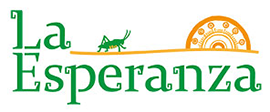Every October, people around the world “go pink” to support and remember those diagnosed with breast cancer. In 2022, 2.3 million women were diagnosed with breast cancer, and 670,000 died from the disease worldwide, according to the World Health Organization. Women don’t need specific risk factors to develop breast cancer. In fact, about half of all women with the disease had no risk factors other than being female and over 40. Family history increases the risk, but most women diagnosed have no known family history. Not having a family history doesn’t mean a woman is at reduced risk.
How do these statistics affect the Hispanic community? Breast cancer occurrence in Hispanic women in the U.S. is 25% lower than in non-Hispanic white women, according to the American Cancer Society. However, breast cancer remains the leading cause of cancer-related deaths in Hispanic women. Hispanic women are more likely to be diagnosed with aggressive triple-negative breast cancer at advanced stages and at a younger age. The reason for these statistics is the lack of early detection practices among Hispanic women. Regular check-ups can change these numbers and empower our community.
Hispanic women often face more serious diagnoses due to language barriers, inadequate health coverage, a lack of understanding about the healthcare system, and limited access to preventative care. In the U.S., they have a higher rate of breast cancer occurrence compared to their Latin American counterparts. The Breast Cancer Research Foundation states that lifestyle changes are the reason for this difference. Traditional Latin American diets rich in fruits, vegetables, and whole grains decrease the risk of cancer, whereas the American diet, which emphasizes processed foods, is likely the cause of this discrepancy.
To raise awareness, we need targeted campaigns to educate Hispanic women about the importance of regular check-ups. We should create easily sharable information about accessing free or low-cost mammograms, bilingual medical care, and basic healthy lifestyle information. However, it’s not just about information; it’s about community support. By coming together, we can make a difference in the fight against breast cancer.
Local resources:
- Delaware Screening for Life: dhss.delaware.gov/dph/dpc/sfl.html
- Delaware Breast Cancer Coalition’s Women’s Health Screening Program: debreastcancer.org/programs/womens-health-screening-program/
- Participating Screening for Life locations by City: freemammograms.org/state/delaware
Sources:
